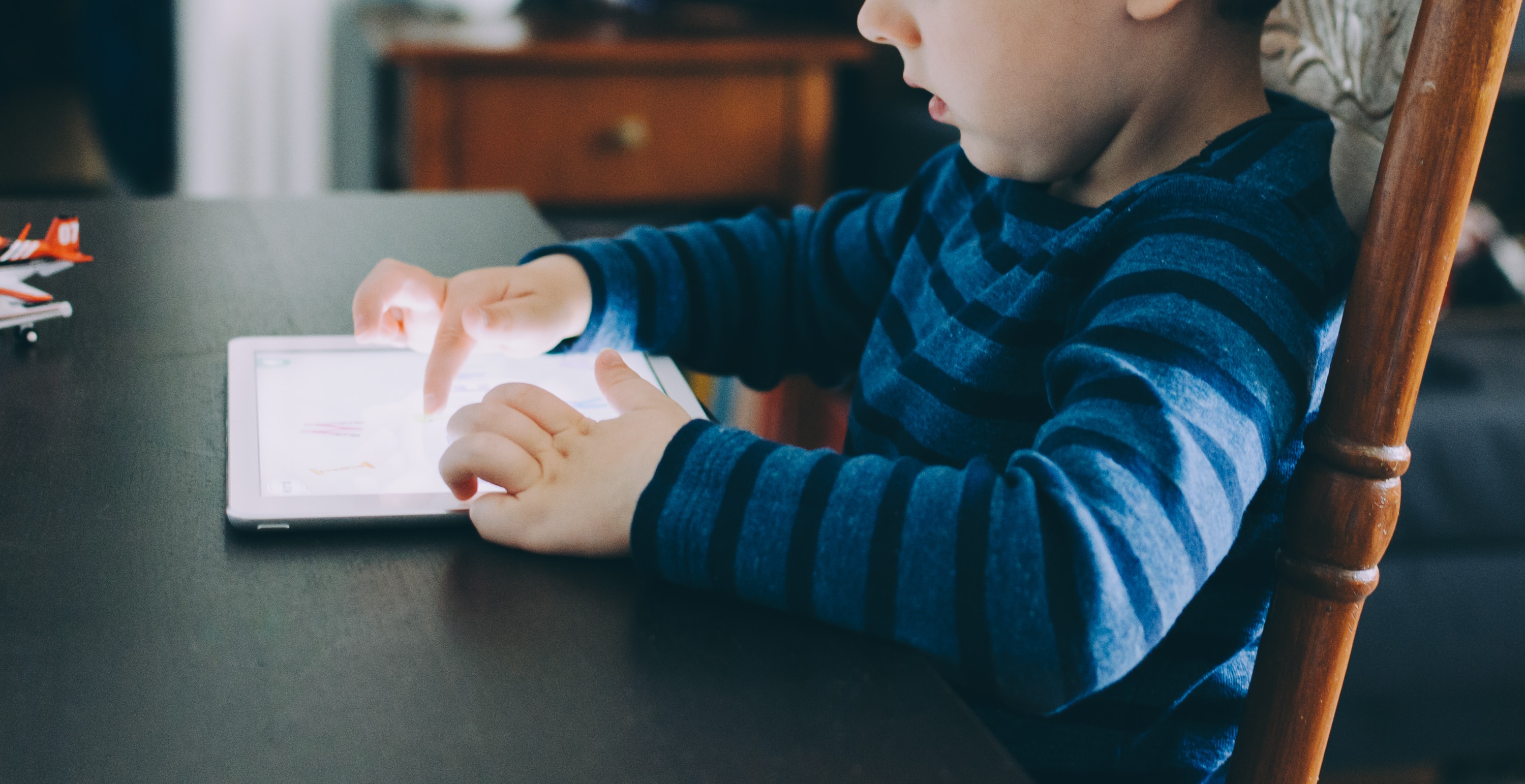Stressed about screen time?

How much screen time should my child have, and is it damaging?
Screen time can feel like a taboo subject for parents. Every family has a different approach to it, perhaps because of your own experience as a child or the routine you now have as a family.
Whatever your approach, parents are constantly bombarded with information about how much screen time is too much for young children.
Our child development experts here at My First Five Years have looked into some of the most recent research, which suggests there might be a way to balance screen-time to reduce any negative impacts.
The first, and most important, thing to stress is that screen time is not always bad. In fact, sometimes screen time can help us be the best parents we can be.
It might be that you need to ensure your toddler is safe and busy while you do a task like cooking dinner or sorting out some admin, or just taking a breather in the kitchen. It might help your toddler move through their morning routine or lets you both cope with a long rainy day at home by providing a little brain break.
These are all important and useful ways to use screen time which you should not feel guilty for.
Being entertained by a screen for short periods of time will not harm your toddler, but it should also be remembered that they are not likely to be learning much from it either.[1]
There is no substitute for interacting with another person, or objects, at this age and studies have shown that toddlers do not learn language from watching screens[2, 3] – most likely because it lacks this interactive connection to someone else.
So, when thinking about the time your toddler spends on screens, consider what they are getting out of it, and, when you can, try to limit the time they spend watching passively.
It usually isn’t possible to follow a strict schedule of screen time, as your choices need to fit into your family routine and with your values. Screen time is also likely to change from day to day. You might choose to watch a film together one day, which is a valuable activity to do for some quality time, but then balance things out the next day.
Be mindful of why you’re turning the screen on, and avoid using screens as a way to soothe your toddler whenever they’re upset.
Toddlers and young children need to experience emotions, and different ways to regulate or recover from upsets, in order to develop soothing methods which will allow them to cope with feelings as they grow.
If they learn to always turn to a screen when they’re upset or angry, toddlers don’t get the opportunity to develop these strategies for themselves and this can result in increased emotional dysregulation as they get older.[4]
Although sometimes giving a screen is going to help you, and them, to calm down and might be exactly what you need to do (perhaps if you’re travelling, or somewhere that letting your toddler soothe themselves will be too difficult or even unsafe), try to ensure you balance this with plenty of opportunities for them to experience other ways of calming down at other times.
If you’re worried your toddler is already spending too much time with screens, don’t panic.
Toddlers are learning all the time and making sure they have a wide variety of experiences outside of screen time is key to making sure they develop all the skills they need to thrive.
Some early research is suggesting that children who play outside frequently as toddlers, alongside higher use of screen time, don’t experience some of the negative impacts of lots of screen time.[5]
This research will need more investigation over the next few years to determine how closely these two factors are related, however, as getting outside is so important it certainly seems to be advice that is worth following sooner rather than later.
References:
[1] Christakis, D. A. (2009). The effects of infant media usage: what do we know and what should we learn? Review Article. Acta Paediatrica, 98, 8-16.
[2] American Academy of Pediatrics (2017). Handheld Screen Time Linked with Speech Delays in Young Children.
[3] Zimmerman, F. J., Christakis, D. A. & Meltzoff, A. N. (2007). Associations between Media Viewing and Language Development in Children Under Age 2 Years. The Journal of Pediatrics, 151, 364-368.
[4] Radesky, J.S., Kaciroti, N., Weeks, H.M., Schaller, A. & Miller, A.L. (2022) ‘Longitudinal Associations Between Use of Mobile Devices for Calming and Emotional Reactivity and Executive Functioning in Children Aged 3 to 5 Years’. JAMA Pediatrics, DOI: 10.1001/jamapediatrics.2022.4793
[5] Sugiyama M, Tsuchiya KJ, Okubo Y, et al. (2023) ‘Outdoor Play as a Mitigating Factor in the Association Between Screen Time for Young Children and Neurodevelopmental Outcomes’. JAMA Pediatr. Published online: January 23, 2023. doi:10.1001/jamapediatrics.2022.5356